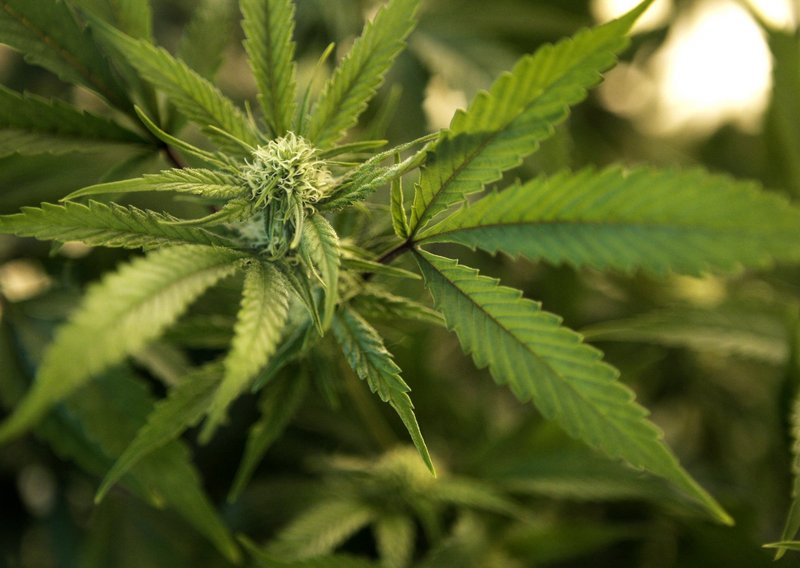SOUTH PORTLAND — There are many arguments for and against medical marijuana. This is not intended to incite that debate. For more than a decade, Maine law has allowed certain “patients” to possess, use and grow marijuana.
The intent here is to provide some insight on a few of the unintended consequences created by last year’s revision and implementation of the Maine Medical Use of Marijuana Act.
Beyond the newly created dispensaries, Maine’s current medical marijuana law allows a registered patient to possess up to 2.5 ounces of processed marijuana and six marijuana plants for their personal use; a registered primary caregiver may possess up to 2.5 ounces of processed marijuana, and up to six marijuana plants, both for up to five separate patients.
So by the letter of the law, one would reasonably assume that a patient could only grow up to six marijuana plants, each of which, by the way, can yield upwards of one pound — or conservatively, $1,500 to $2,500 worth — of marijuana; and caregivers could only grow up to 30 plants. Sounds straightforward enough, right?
Historically, when enforcing marijuana laws, a plant has been a plant, plain and simple.
Now, based on a newly formed definition, created by a panel that drafted the legally required DHHS Rules Governing the Medical Use of Marijuana Program, a marijuana plant is only a marijuana plant if the plant is at least 1 foot high, 1 foot wide, female and flowering.
So, there is no longer any actual cap on the overall number of plants that can be grown by a patient or caregiver. This raises problems in terms of enforcement, public safety and quality of life.
Let’s say that a police department gets a report about 150 marijuana plants growing indoors. After a preliminary investigation, which would now require contacting DHHS, investigators determine that the residents at that location are neither registered patients nor registered caregivers.
Police execute a search warrant, yielding 150 marijuana plants. The person(s) responsible for the plants, regardless of their size or gender, would be charged with felony marijuana cultivation.
By contrast, let’s now say that after the police get that same initial report, a DHHS check reveals that the resident is a registered caregiver with five patients. Before applying for a search warrant in this case, the police would now need to have probable cause to believe that there are not just more than 30 plants, but more than 30 plants that are at least 1 foot high, 1 foot wide, female and flowering.
That, quite simply, is an impossible hurdle, and is merely one example of how the application of the current rules will allow those so inclined the ability to use the medical marijuana laws to effectively shield themselves from investigation and prosecution.
Stymied at the onset, the police are now left with limited options to ferret out potential criminal activity.
Yes, the information could be forwarded to DHHS, the agency with administrative oversight authority. The law, however, conveniently requires DHHS to provide 24 hours of advance notice prior to any such on-site inspection.
Whether or not this seems like a problem on paper, it may quickly become a problem when it’s happening in one’s proverbial “backyard.”
Unlike the dispensary rules, who’s checking the physical security of the caregiver’s “grow” to ensure that neighborhood children will not have access?
The law would even allow a patient or caregiver to legally operate right next door to a school or day care.
Who is inspecting the safety of the electrical wiring and chemicals at such locations?
I recall a large apartment building fire on Broadway several years back, initiated by an indoor marijuana grower who got his electrical wires crossed.
And how about odors and health issues? It’s not uncommon to smell the “contents” of one caregiver’s grow here in South Portland up to a half mile or more away.
So the next time you’re out walking your dog, or flipping burgers on the grill, and think you smell a resident skunk, take another whiff.
It might just be your friendly neighborhood caregiver tending his wares.
Maine’s system is ahead of those in other states, but we can certainly do it better.
– Special to The Press Herald
Copy the Story Link
Send questions/comments to the editors.



Success. Please wait for the page to reload. If the page does not reload within 5 seconds, please refresh the page.
Enter your email and password to access comments.
Hi, to comment on stories you must . This profile is in addition to your subscription and website login.
Already have a commenting profile? .
Invalid username/password.
Please check your email to confirm and complete your registration.
Only subscribers are eligible to post comments. Please subscribe or login first for digital access. Here’s why.
Use the form below to reset your password. When you've submitted your account email, we will send an email with a reset code.